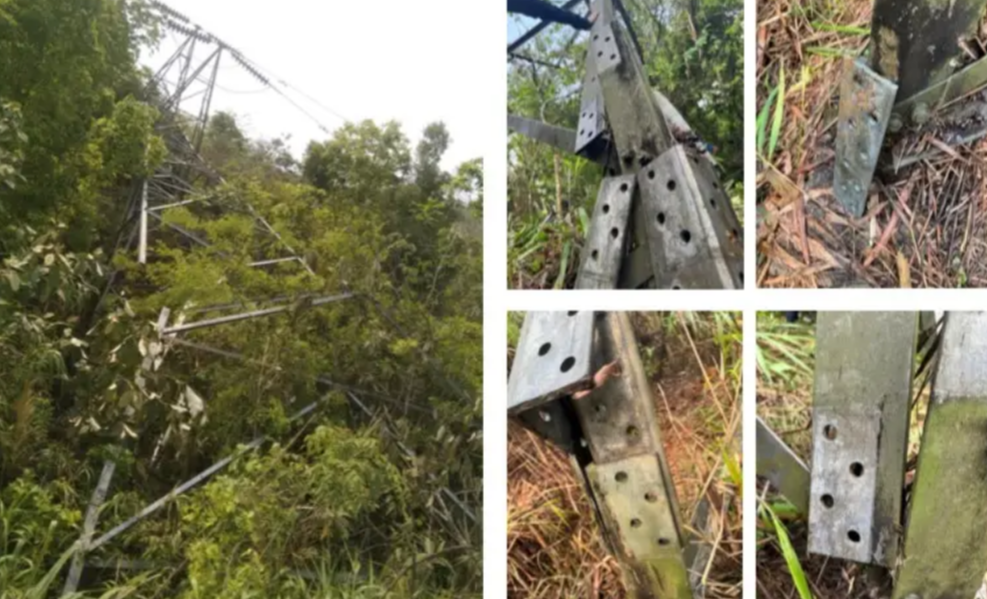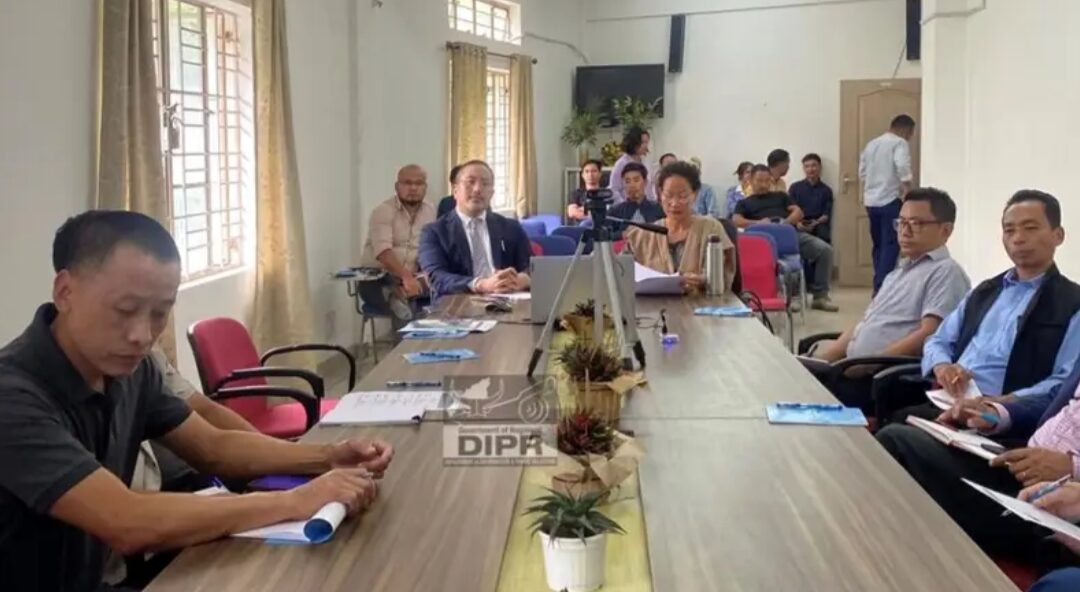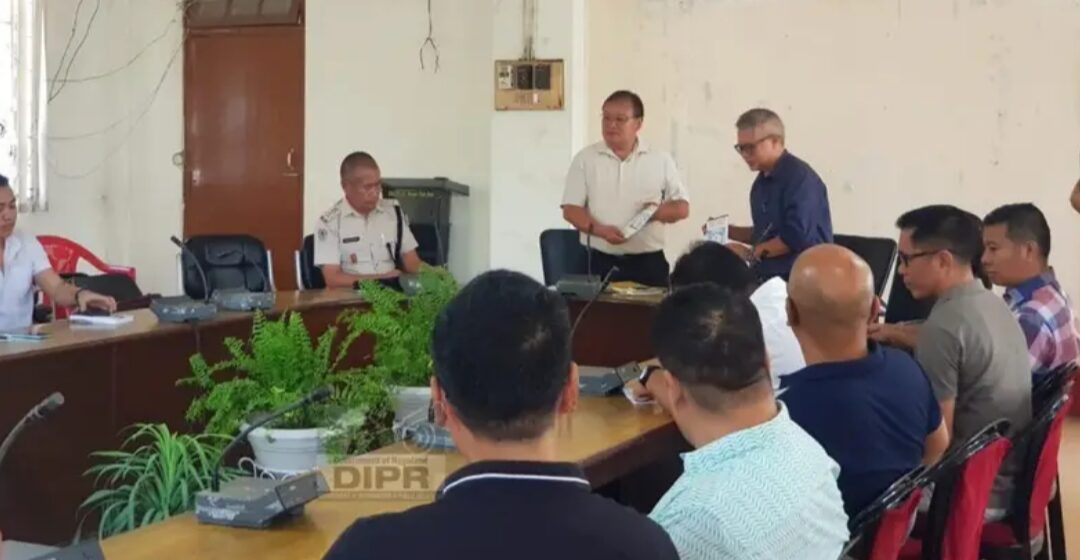Kohima, Tseminyu, and the upper range of Wokha District are at risk of a complete blackout following the collapse of a vital transmission tower due to an act of theft. The incident occurred in the early hours of 27 April 2024, when the 132 kV Single circuit of the Wokha – Sanis Transmission Line near Riphyim Old area under Wokha District collapsed after the nuts and bolts of the tower were deliberately cut and removed.
The Chief Engineer (T&G) of the Department of Power, Nagaland, Er. Penrithung Yanthan, confirmed that the collapse was not an accident but a result of intentional sabotage. The transmission line, which is crucial for evacuating power from the Doyang Hydroelectric Project and is a vital part of the State Power Transmission Grid, has been the target of repeated theft and vandalism.
Also Read: NCD urges DCCI, State Government to restore normalcy in Dimapur
The collapse of the tower has put the entire region at severe risk of a complete blackout. Adjacent towers (Tower numbers 15 and 17) are also at risk of collapsing due to the theft of bracings. If any line faults or power outages occur on the 132 kV Transmission line between Dimapur – Kohima – Karong (Manipur), it could lead to a total blackout in Kohima, affecting the entire Kohima and Tseminyu districts and the upper range of Wokha District, including Wokha Town.
The Wokha – Sanis line has faced ongoing challenges due to theft and damage to several towers at various locations between Wokha and Doyang. Despite these challenges, the Department of Power restored the line in 2016 after incurring significant expenditures funded by the state government. The restoration was a major effort to ensure stable and reliable power supply to the region, which is now jeopardized by the recent collapse.
Also Read: LFIC hosts Parting Social for outgoing 6th Semester students
The Department of Power has expressed its commitment to providing reliable and stable power despite many constraints. However, the repeated incidents of theft and vandalism pose a continuous threat to infrastructure and necessitate increased security measures.
Local authorities and the state government must implement more stringent security protocols around critical infrastructure and consider the installation of surveillance systems to deter such acts of vandalism.
The deliberate collapse of the transmission tower is a stark reminder of the vulnerabilities in critical infrastructure and the impact of criminal activities on public utilities.
Also Read: Wokha District Gears Up for Second Phase of Election Official Training
The potential blackout would not only cause inconvenience but also pose serious risks to safety, healthcare, and the economy in the affected regions. Immediate action is required to repair the damage and secure the infrastructure to prevent future incidents.
The consequences of such acts of sabotage extend far beyond mere inconvenience, and it is the responsibility of every individual to remain vigilant and report any suspicious activities to the authorities.




